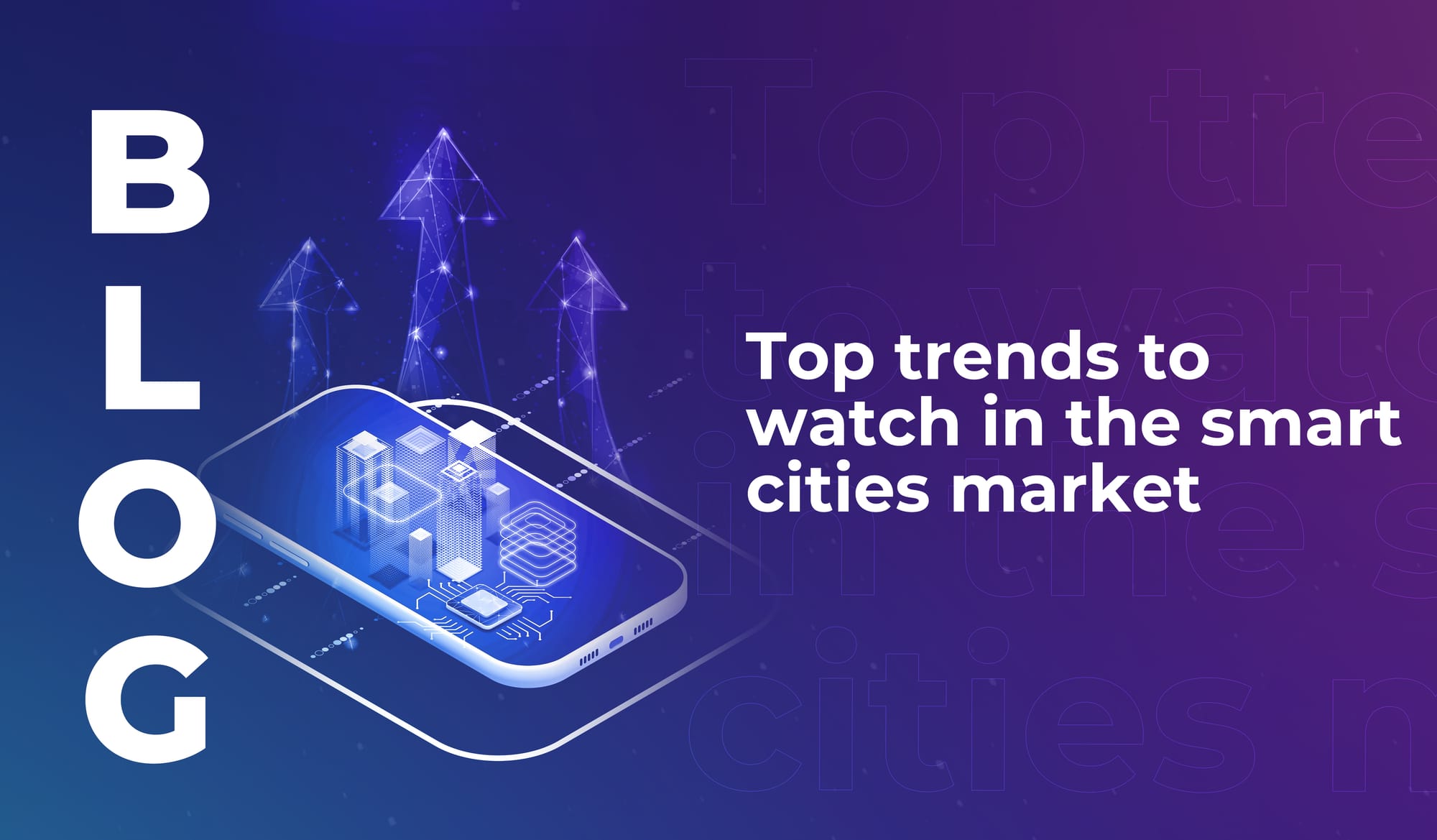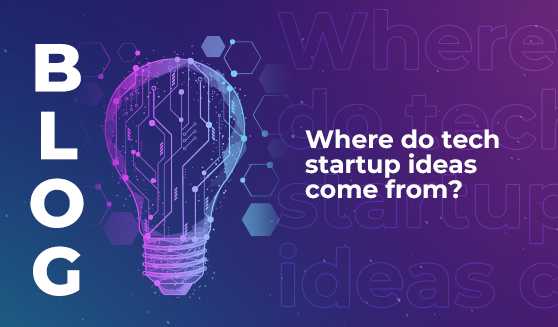
Top trends to watch in the smart cities market
Explore key smart city market trends for 2025–2030, from EV infrastructure to AI-powered waste systems – backed by the latest industry report.


Every tech entrepreneur has experienced the rush of a new idea. Sometimes it happens suddenly: you’re just going about your daily life and it hits you. And sometimes it’s a slower, quieter process; the idea develops gradually, inspired by your experiences in life and work, and your confidence in the idea grows slowly too.
Startup ideas don’t come from one place. They come from an accumulation of experience in your personal and professional life; from an awareness of the communities, societies, and markets that you operate in or near; and ideas are as diverse as the people who have them.
But for those entrepreneurs among our audience who are struggling for inspiration right now – we want to boost your inspiration and remind you that you might only be a few thought-steps away from your next big idea.
And when we were considering which startups to ask about the origins of their outstanding ideas, we realised we already had the perfect inspiration bank to draw on for you – the winners of the LEAP Rocket Fuel Startup Competition.
At LEAP 2023, Takadao won the Aviatric Award for the most innovative startup pioneered by women founders. The company’s Co-Founder, Sharene Lee, said:
“As a Muslim, I've typically been excluded from traditional financial services as most of these are not shariah-compliant. In addition to the Muslim community, there are many communities around the world that are also excluded from banking and insurance for other reasons, generally related to profit.”
This lived experience of financial exclusion became a driving force behind Lee’s startup idea. “It's time to change that,” she added, “and the rise of blockchains and cryptocurrencies give us a way to build new infrastructure that can be community-based and decentralised. Rather than focusing on maximising shareholder profits, at Takadao, the community are the shareholders and our products are structured to maximise community well-being.”
Wassim Merheby (Co-Founder and CEO of Verofax, winner of the Artificial Intelligence award) also used real-life experience as inspiration for a problem-solving business.
“Verofax was developed from our personal pain,” he said when we interviewed him for the LEAP blog. “My co-founder and I had been working for 20 years as sales and marketing executives in global firms. However, it was always a challenge to have our brands engage with direct-to-consumer marketing, and use data to optimise product availability.”
“So in 2019, we joined efforts to create a solution for giving every item a digital passport to address inventory and marketing challenges. We started Verofax in 2019 and we launched the Track and Trace service with augmented reality and computer vision in 2021.”
Even if it doesn’t affect you directly, it’s inevitable that you are aware of challenges that are unique to your community or demographic. And many entrepreneurs use that awareness to build businesses that have strong product-market fit.
For example, Ibrahim Maigari (Founder and CEO at RiceAfrika Technologies) launched his startup “to solve the problems of hunger and food insecurity in Africa that is as a result of the under-productivity of our smallholder farmers.”
“Smallholder farmers produce 80% of the food we eat in Africa,” Maigari explained, “and we thought any effort to solve the perennial hunger (over 300m people are facing severe hunger in Africa according to the UN/FAO) in Africa must start by improving the productivity of the smallholder farmers.”
“This underproductivity starts from a lack of access to mechanisation (in land preparation and harvesting), lack of access to high-yielding seeds, lack of environmentally good chemicals, lack of farm extension services, lack of affordable fertiliser, and lack of access to a structured market.”
“We started the company to create a solution to these problems.”
And Yussouf Ntwali and Gabriel Ekman (Co-Founders of BAG Innovation), winners of the Shooting Star award at LEAP 2023, spotted a gap between education and real industry experience – and decided to step into that space.
“BAG Innovation was founded out of a shared vision between my co-founder, Gabriel Ekman, and myself to combat youth unemployment in Africa,” said Ntwali. “We observed a significant gap between the theoretical education provided by universities and the practical skills needed in the real-world job market.”
“Our inspiration came from the desire to bridge this divide by creating an innovative, virtual job simulation platform that would prepare students for the workforce while still in university.”
Startup ideas can come from unlikely places – but if you dig into them, you’ll almost always find that the entrepreneur’s life experience isn’t far beneath the surface.
So look at where you’ve come from and what you’ve learnt along the way. How could your experience lend itself to a solution for a problem that needs to be solved?
Discover the best inspiration for your next tech startup at LEAP 2025. Or if you’re an investor seeking a tech startup to add to your portfolio, join us at LEAP to meet your ideal match.

Explore key smart city market trends for 2025–2030, from EV infrastructure to AI-powered waste systems – backed by the latest industry report.

Learn how generative AI is unlocking the true potential of digital twins – to make smart cities more efficient, inclusive, and citizen-focused.

The smart cities of the future will use tech to lower emissions, cut urban temperatures, and improve quality of life in highly populated areas.

Explore key smart city market trends for 2025–2030, from EV infrastructure to AI-powered waste systems – backed by the latest industry report.

Learn how generative AI is unlocking the true potential of digital twins – to make smart cities more efficient, inclusive, and citizen-focused.

The smart cities of the future will use tech to lower emissions, cut urban temperatures, and improve quality of life in highly populated areas.